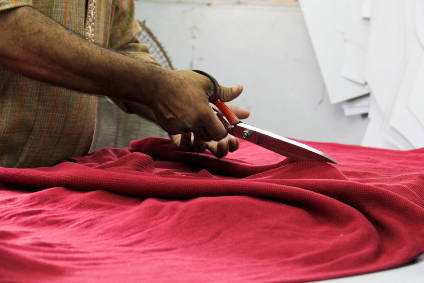
Plans to establish an apparel park in Lahore – the capital city of Pakistan’s Punjab province, and a major clothing and textile manufacturing hub – appear to have been stalled following a dispute between the provincial government and the prospective Chinese investor.
The much-publicised project was first mooted in 2019 when a delegation from eight major Chinese companies visited Pakistan, and expressed enthusiasm to invest in the country’s clothing and textile sector.
A more detailed announcement was subsequently made by Shanghai-based Challenge Apparel Ltd, whose Pakistan subsidiary has operated an existing US$60m Challenge textile plant since 2017 on the road to Multan, south-west of Lahore.
The new park, however, would have state-of-the-art fabric manufacturing units, dyeing facilities, and clothing manufacturing facilities, with a special aim of increasing sportswear exports from Pakistan, according to managing director Karen Chen.
Speaking last month during a visit of China’s ambassador to Pakistan, Nong Rang, she added: “More Chinese companies are also gearing up to invest in Pakistan considering this country an attractive place for business.”
However, Punjab government officials told just-style the plan is now being held up by a dispute. “The project has gone into cold storage and we don’t see any progress in the near future because of certain controversy developed between the Punjab provincial government and the Chinese investor firm,” said an official at the Punjab Board of Investment & Trade (PBIT), on condition of anonymity. The official refused to detail the cause of the row.

US Tariffs are shifting - will you react or anticipate?
Don’t let policy changes catch you off guard. Stay proactive with real-time data and expert analysis.
By GlobalDataThat is not going to be good news for Challenge. According to Chen, her company’s Pakistan sportswear export receipts would grow to US$120m in the first year of the project, assuming it went ahead, and then US$400m a year once the Challenge Fashion Industrial Park becomes fully operational.
Fabric production
Ijaz Khokhar, chief coordinator at the Pakistan Readymade Garments Manufacturers and Exporters Association (PRGMEA), also has concerns about the plan, saying it should only go ahead if the park includes material manufacturing units to feed clothing exporters with inputs.
“The announcement to establish an apparel industrial park in Lahore is a good initiative but I would suggest to the government to make arrangements for setting up raw material manufacturing units in the park.”
If not, the plan would “serve no purpose,” in sustainably developing Pakistan’s clothing and textile sector. Given the country’s reliance on material imports, Pakistan apparel sector continues to struggle with south Asian competitors, he added.
There has also been a lack of progress regarding a plan unveiled by China Railway in 2020 to establish a garment production city in a similar zone to the Challenge project – on the Lahore-Kasur road, around 15 kilometres south of Lahore. This involved the company investing US$500 million into developing 400 acres of land. But one year on, this project remains on paper, with no construction having begun.


